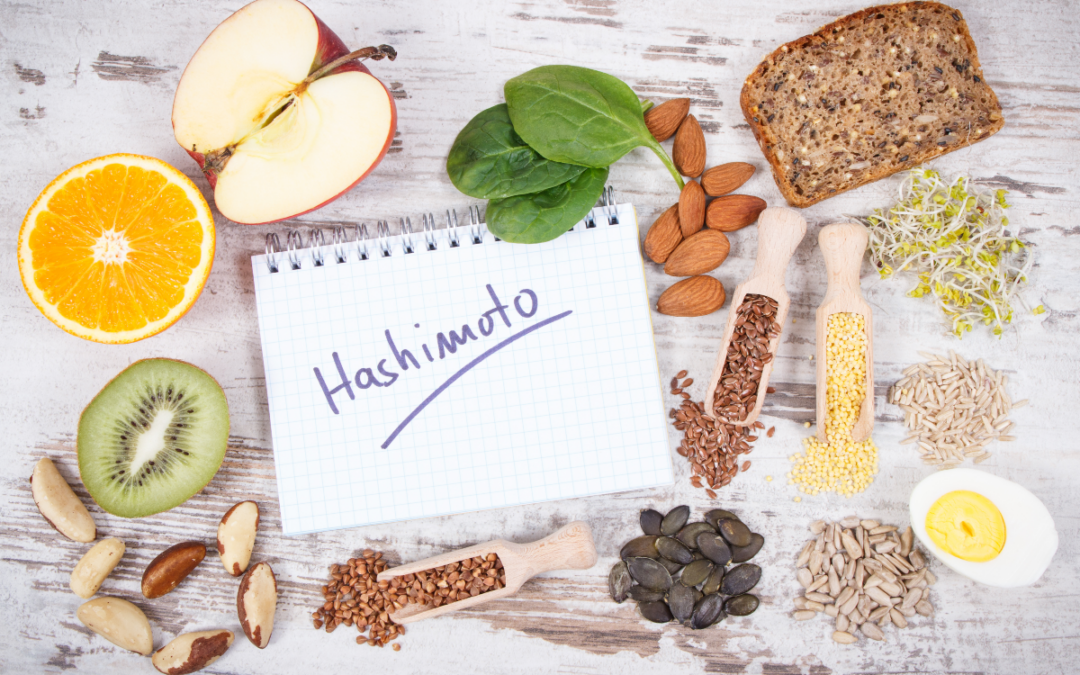Hashimoto’s disease affects many people worldwide. For people with Hashimoto’s disease, eating an appropriate diet can be a powerful ally in the treatment of chronic thyroiditis, thus offering new prospects to improve the quality of life and well-being of patients.
How important is diet in the treatment of Hashimoto’s disease?
When treating hypothyroidism associated with Hashimoto’s disease, dietary habits can help relieve symptoms, and limit weight gain as well as metabolic problems. Chronic thyroiditis causes inflammation of the thyroid gland, thereby disrupting the production of thyroid hormones which are essential to help the body work properly.
Nutritional intake plays a vital role in the management of lymphocytic thyroiditis, especially in women. Some food have anti-inflammatory properties that can help relieve the symptoms of hypothyroidism, while others can make the symptoms worse.
Selenium and iodine are essential elements for a healthy thyroid; they are found naturally in seafood, dairy products and liver, and also in seaweed, eggs and oily fish. Ensuring adequate iron intake from food sources such as red meat, lentils and spinach could also be beneficial for women with thyroid disease.
What is the best diet for Hashimoto’s disease?
The best diet to follow mainly depends on the specific nutritional requirements of each individual. Nevertheless, some diets have been reported as having positive effects on many people with this autoimmune condition. Therefore, by adjusting their diet, patients can improve their quality of life while limiting weight gain.
Eating anti-inflammatory foods such as fruit, nuts, seeds and oily fish can help to reduce inflammation and alleviate symptoms. For some hypersensitive individuals, a gluten-free diet may relieve the inflammation associated with hypothyroidism. However, patients must receive advice from a health professional to determine the most suitable dietary strategy to ensure that all their nutritional needs are being met.
A nutritional approach to relieve Hashimoto’s thyroiditis
An appropriate nutritional approach plays an essential role in the management of this condition. By adopting certain dietary strategies, patients can help reduce the inflammation of the thyroid gland.
It should be noted that the following dietary advice is based on existing diets but these may not be suitable in all cases. A doctor must approve the diets, as they may need to be adapted an individual’s specific requirements.
Anti-inflammatory foods
Foods rich in antioxidants and omega-3 fatty acids such as fruit and vegetables, oily fish like salmon, mackerel or sardines, but also nuts, have anti-inflammatory properties. Thus, incorporating more of these types of food into your meals can have beneficial effects.
Some people with thyroid disease are sensitive to gluten, a protein found in wheat, barley and rye. For these patients, adapting their eating habits can help improve their body’s ability to work properly.
Autoimmune diets
Adopting the autoimmune protocol (AIP) helps to eliminate foods likely to trigger an inflammatory reaction in people with autoimmune diseases. It can mean excluding certain food groups such as dairy, pulses, eggs or nuts, as well as coffee or food additives.
A nutrient-rich diet
A balanced diet rich in essential vitamins and minerals is key to helping the body work better. It is therefore essential to include sources of selenium, iodine, iron, zinc and vitamin D in your meals to support the thyroid gland and strengthen your immune system. Vitamin B12 is essential for a healthy metabolism and needs to be included in your diet. It is therefore recommend eating wholemeal cereals, eggs, as well as offal such as liver.
Paleo diet
A paleo diet means eating an unprocessed diet that avoids processed and refined products. The paleo diet is based on the eating habits of our Palaeolithic ancestors and consists of excluding certain foods such as cereals, sugar, salt and dairy products. Although this nutritional plan is not specifically adapted for lymphocytic thyroiditis, some people have reported improvements in symptoms on such diets.
Low glycaemic index diet
Eating foods with a low glycaemic index (GI) to maintain stable blood sugar levels can help balance hormones and support the thyroid function. Vegetables, pulses and lean sources of protein are excellent choices for a low glycaemic index diet.
Compensating for iodine deficiency
Iodine is an essential nutrient for the production of thyroid hormones. For this reason we recommend eating foods such as seafood, dairy products, eggs and some types of seaweed to limit weight gain and help you feel better about your body.
However, it’s also important to limit your consumption of goitrogenic – i.e. foods that can cause goitre when eaten in very large quantities – such as cruciferous vegetables (cabbage, broccoli, etc.) but also seeds and soya beans, as these can interfere with iodine absorption. However, it should also be noted that too much iodine can harm the body and worsen or cause hyperthyroidism. For this reason, it’s essential to seek the advice of a health professional before changing your diet
Did you know? Vitamin D plays an important role in regulating the immune system and thyroid health. As reported in a study published in the Annals of endocrinology in September 2021, people with Hashimoto’s disease often have low Vitamin D levels. Regular exposure to sunlight and the inclusion of food rich in vitamin D such as oily fish, mushrooms and enriched dairy products can help maintain adequate levels of this essential vitamin.
Read also : Best foods for managing hyperthyroidism
In short, there is no optimal one-size-fits-all nutritional programme for people with Hashimoto’s disease, but their diet requires a personalised approach that takes individual needs into account. Anti-inflammatory and autoimmune diets, as well as balanced nutritional diets containing zinc and selenium, have been shown to improve the quality of life of patients. However, it is essential to consult an endocrinologist to establish the best diet for the patient concerned, to take into account the specific characteristics of each case. A well-adjusted nutritional approach can therefore play an important role in the management of hypothyroidism and contribute to overall well-being.




